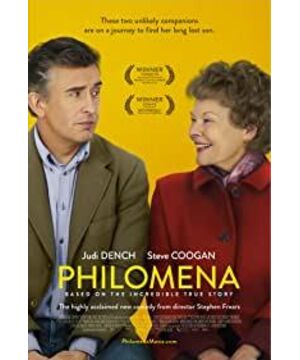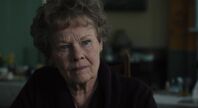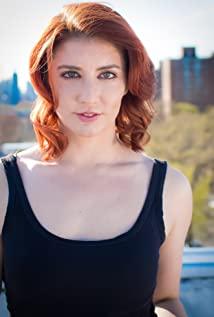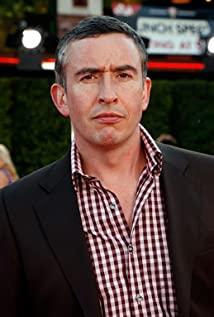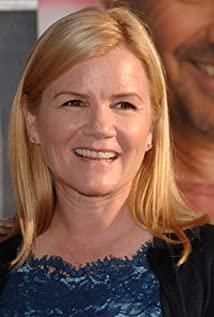It is not easy to compare the pros and cons of the novel Philomena and the movie Philomena. Different from the extension and condensing of movies based on general novels, the movie "Filo Mena", compared with the novel, tells the same story from the B side of the tape, from a completely different perspective, forming a complete circle with the novel. arc. Movies are like novel documentaries, narrators, and commentators. Different interpretations and even different viewpoints allow readers who have read the novel to appreciate the same story from a new perspective. After reading novels and movies, readers will be amazed that one thing can be told and interpreted from so many different angles. Although it is not a completely opposite view than Rashomon, it is completely the inner world of different characters.
The novel Philomena was written by former British journalist Martin Sixsmith. It tells about the fact that in the Irish society of Catholicism in the 1950s, unmarried women who became pregnant before they could not keep their children could only be sent to the monastery to do hard labor. Medical and living conditions are extremely poor. And their children are almost "sold" to wealthy Americans in the name of "adoption." For two thousand dollars, a Catholic family can "adopt" a healthy Irish child. Filomena, a girl who has been separated from her son, and Anthony, who has been forced to separate from her mother in ignorance, lives in the New World, has feuds with her adoptive father’s family, and has struggled with her own history. Doubts about one's own aptitude, decent work in the upper-class Republican Party, and struggle halfway through the inner world... The ups and downs of life are like a play. And Anthony blamed all of this on his biological mother's "abandonment": If even her biological mother doesn't want himself, then who will love you? With such doubts, he embarked on a long way to understand his life experience...
The novel is a linear narrative, narrated from the 1950s, carefully describing every juncture, every dramatic scene, and every sad ending of the protagonist's growth path. And the movie? Compared to what you might have guessed, it is from the mother's point of view. From the beginning of the film to the 21st century, Philomena, who had been in the world for decades after she came out of the monastery, was already an old woman by this time. She has her own child again, but the sorrow and regret that she was forced to be separated from her own flesh and blood always linger in her mind. It just so happened that she met Martin, a former BBC reporter who had just been forced to resign, the tension-filled interaction between a typical working class and devout Philomena and an intellectual and cynical Martin, a point that happened on the path of finding a child. Bit by bit has become the most powerful part of this movie. It is the opposite of Anthony's story and a supplement to the legend-look, after your legendary life, this is the root of everything.
A child, separated from his biological mother since the age of three, was taken to a completely unfamiliar family and started a new life. It should be unaware of the past life. He was cultivated into the elite of the United States, attended one of the best private universities, became a lawyer, and went to work in Washington DC. He was talented and talented and became the "big man" in his mother's mouth. And Philomena? She has always lived in the country and worked as a blue-collar worker. She loves to read romance novels like "The Domineering CEO is in Love with Me", and her behavior is vulgar. The reporter Martin looked down on her at first but was helpless. But this is a mother. This is a mother who was forced to sign forever to give up custody. After fifty years, she was persistently searching for her child. When he knew his son’s achievements, her pride was exactly the same as that of all mothers: "He turned out to be Republican lawyer! If he lives with me, maybe he can be a lawyer in the town too!” This is what an educated and low-class mother said, in addition to full of maternal love, What's there? When Philomena knew that Anthony was a homosexual, this Catholic was not surprising at all: "I have a hunch that he has always been a sensitive child..." She had only been with him for three years! Anthony went so far and so high in the future, but in his mother's mind, he has always been the simple and sensitive child who can wipe away her tears with her immature hands when her mother is crying. She fantasizes about his life and uses her most naive and innocent vision to imagine life in the United States: "What if he lives on the street?" "What if he doesn't have a job?" "What if he becomes a fat man?" Why did you become fat?" the reporter asked strangely. "Because the amount of food in the United States is too big!" Look, this is the worry in every mother's heart. Whether or not the child is by her side, she may not even see one in her life.
On Anthony's side, he was under more pressure. He can remember the mountains and rivers of his hometown, know that he is from Ireland, and know that his mother "abandoned" himself. He followed the rules and performed well in all aspects of the school. Because he was not confident in himself, he had to ask himself to do his best to make others accept himself. However, deep in his heart, there is always a voice telling himself: You are an abandoned child, and you are a child loved by no one. He feels that he will never deserve happiness, so he destroys his feelings again and again in a self-masochistic manner: whether he is the opposite sex or the same sex, his love ending is always dramatic and tragic. He confessed to the priest: "My original sin is that I love men." However, when true love comes, he is unwilling to face it. He talked about his hometown to his first love: "It's like a song, you still remember the beautiful feeling when you hear it, but you have forever forgotten its melody..."
He was born three times Land-a Catholic monastery in Ireland looking for his birth mother. The nuns refused his request from beginning to end. The last time, when he learned that he was suffering from AIDS, he asked the nun for the last time to help him find his birth information. The nun still rejected him.
Both novels and movies are based on real stories. The protagonist’s name is not replaced. As the reporter said in the movie: "You can't change your name, this is the meaning of this story." In the book I read, there are photos of Anthony in the monastery before the age of three, photos of him attending the coming-of-age ceremony, and photos of graduating from college. There are pictures of working as a lawyer, and pictures of him returning to an Irish monastery. The last one is a photo of his mother standing in front of his cemetery.
Fifty years of searching and searching, but in exchange for a smear of loess. When the mother and son finally met, the separation of life became a goodbye.
The last time he was rejected by the nun, he made a final request. He donated his property to the monastery, only to be buried in the place of birth. His partner had a big fight with his adoptive father and took him back to Ireland. The final answer is in the movie: The mother is pleased to find that her son still remembers her and his hometown.
There are contradictions and conflicts of religion, human relationship, morality, and self in novels and movies. The photos in the novel are turned into videos in the movie. Filomena looked at the pictures of Anthony's growing up, feeling the maternal love of fifty years all appearing on the screen, it was a longing for but unattainable regret, the loss that can never be made up in the interlacing of time and space. There is nothing more uncomfortable than a mother losing her child: and Philomena can say to the nun who refused her to look for her son: "I forgive you", and shocked the reporter and thought about him. Different values from Filomena. He was cynical, an eye for an eye; she received so much injustice, but she still believed in God and treated herself kindly. This is a conflict between religions, and in my opinion, it is a conflict between classes. Most viewers may look at the problem from the perspective of a reporter, and Filomena's final harmony with the reporter shows that these values actually lead to the same goal: a compromise between people and their own destiny.
The film bypasses Anthony's life, focusing on Philomena's search for her child. Avoiding the heavy and light, but clarified the theme with keen brushstrokes. The interaction between Judy Dungee and Steve Coogan is very interesting, and the two superb acting skills amused the audience with one look. Novels are more dramatic. In many places, it can be seen that the author added fuel and jealousy. I don’t like this writing method that uses real people to incite the author’s feelings. However, the author has a deep pen, with the reporter’s objectiveness and calmness, and is more useful. Short sentences, each sentence usually begins with "He", as if an onlooker is telling a story that does not belong to him.
View more about Philomena reviews


